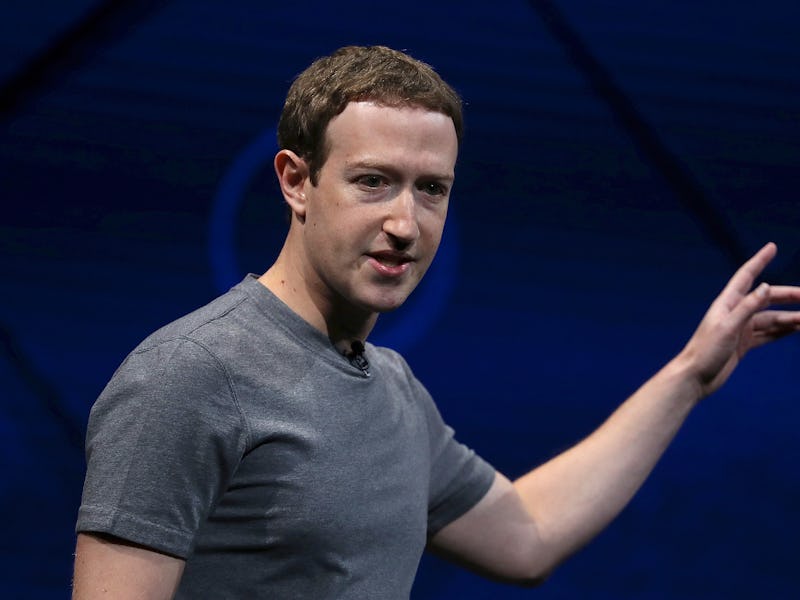Mark Zuckerberg Reveals How Facebook Will Change in the Next 2 Years
It's all about video.

Video is gradually becoming a bigger part of the Facebook experience, and although the integration is fairly subtle now, it won’t be for long. CEO Mark Zuckerberg has said that Facebook is transitioning into a “video-first” platform, and on Wednesday he gave more details about this plan during the company’s second quarter earnings call. “Over the next two or three years,” he said, video is “going to be much bigger driver of the business […] than the trajectory of what we’re doing on Messenger and WhatsApp.”
The bulk of the call focused on Facebook’s long-term plans to “monetize” Messenger and Whatsapp: The company hopes to eventually make advertising a major part of those services, which respectively see two billion messages sent between people and businesses every month and one billion active users a day.
Investors repeatedly asked questions about the company’s Messenger marketing plans during the Q&A session until Zuckerberg stepped in to redirect the conversation. Messenger is important, he said, but the most significant changes going on at Facebook in the short term are happening with video.
“I actually think over the next few years, the much bigger driver of the business, and determinant of how we do, is going to be video, not Messenger,” he said.
He said that Facebook’s plans for video are “large-scale” and will involve “economics [that] are quite different from what the current feed-based businesses that we have today.”
People already watch an average of 100 million hours of video on Facebook every day, through Facebook Live streams or videos shared on news feeds as well as original video series that appear on news feeds and the Facebook app’s video tab. The tab brings up a video-only feed that users scroll through to view content that plays automatically, much of which is selected using an algorithm; it’s somewhat like Snapchat’s “Discover” feed.
Some examples of the video feed tab, provided by Facebook in 2016.
Facebook users increasingly spending their time on video content is “the biggest trend we see in consumer behavior,” Zuckerberg said. He attributed the trend largely to the fact that smartphones are getting better at playing video without buffering.
Although Zuckerberg offered some details about the video-first changes and a timeline within which they’ll roll out (two to three years) in this earnings call, he best articulated his overall vision during last year’s fourth quarter call:
“The goal that we have […] is to make it so that when people want to watch videos or want to keep up to date with what’s going on with their favorite show, or what’s going on with a public figure that they want to follow, that they can come to Facebook and go to a place knowing that that’s going to show them all the content that they’re interested in. […] You want to watch videos, you want to keep up with the content that you watch episodically week over week. This is going to be the place where you go to do that.”
Vice President of Investor Relations Deborah Crawford told investors that users will spend less time on the news feed as they increasingly get involved with Facebook’s videos. This is consistent with greater trends; a Cisco study found 75 percent of mobile data traffic will come from video content by 2021.
Facebook has great incentive to push users toward video. It’s nearly run out of space for advertisements in news feeds, so it’s turning instead to ad growth in Messenger, Whatsapp, Instagram stories (because Facebook owns Instagram), and video. Plus there’s the fact that video content encourages users to linger more on the site; a March 2017 biometric from Facebook found that people look at video five times longer than static content.
As for Facebook’s earnings, they are solid and even outperformed analysts’ expectations. Shareholders were earning 78 cents per share at this time last year; that was projected to increase to $1.12, but instead moved to $1.32. The company’s second quarter earnings in 2016 were $6.4 billion, and this year they were $9.3 billion.
Two years from now, you’ll be using Facebook in a totally different way. Remember when statuses were relevant? The traditional news feed could be on a similar path to oblivion. One thing’s for sure: Video is going to shoot up to the pinnacle of cultural relevance. Get ready.